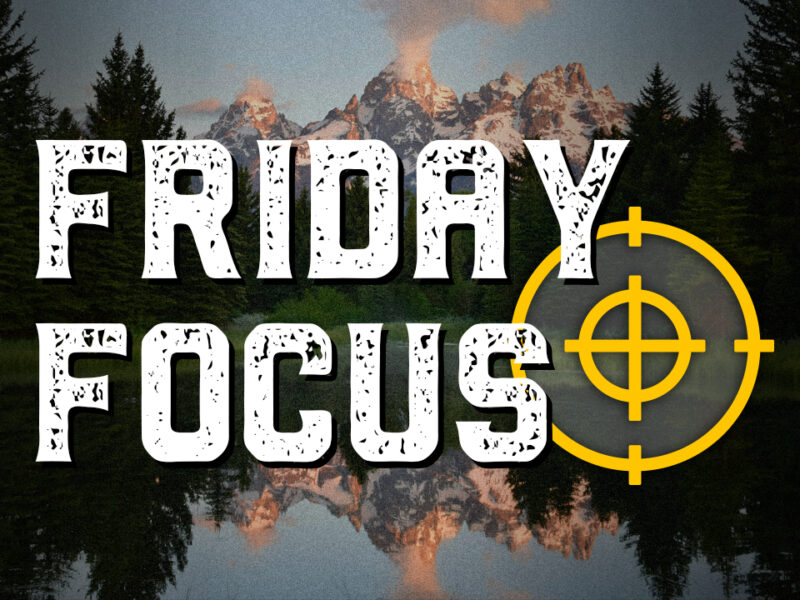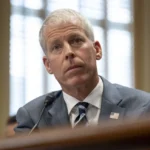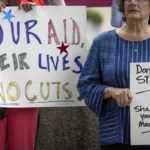FRIDAY FOCUS: ‘Devastating’ Drug and Overdose Crisis Grips Wyoming (Part 3)
Cheyenne man uses firsthand experience with addiction to educate, comfort others
- Published In: Other News & Features
- Last Updated: Apr 14, 2023

By Ernest Beck
Special to the Wyoming Truth
This is the third Friday Focus on the drug crisis in Wyoming. Part one featured an interview with a drug intelligence officer for the Wyoming Rocky Mountain High Intensity Drug Trafficking Areas (HIDTA) task force. Part two featured an interview with the executive director of Recover Wyoming, a Cheyenne-based nonprofit that helps individuals find their way out of substance abuse.
Substance use disorder is often an unexpected trap. It can begin innocently enough, but then quickly lead to dependency. The drug hijacks and rewires the brain, tolerance grows and the desire for ever-stronger substances becomes too great to overcome.

Levi Wardell, 34, who lives in Cheyenne, knows this all too well. A former substance user, he describes the drugs he once used—including methamphetamines and heroin—as “a warm hug that takes over your body,” an experience that led him to drug dealing, stints in prison and rehab and years of turmoil. Today, Wardell is four years sober and a funeral director in his hometown. He also serves on the board of directors of Recover Wyoming, an organization that helps people find their way to recovery, as well as jobs and housing to become productive members of their community.
Wardell recently spoke to the Wyoming Truth about his struggles with substance abuse, how difficult it can be to enter and stay in treatment and how he helps parents of overdose victims deal with grief. What follows are excerpts from the conversation.
Tell us about your early life and how you started using drugs.
Wardell: I was born and raised in Cheyenne and had what I’d call a “Leave it to Beaver” life. My dad was a successful salesman and coached our baseball team; my mom stayed at home. But at one point, my father was introduced to methamphetamines while on the road and started using them, and then brought the drugs home. My mom started using, too. Before long, our life became a nightmare of domestic violence and psychotic episodes. They eventually split up. By ninth grade, I was smoking pot and doing meth. And when my dad lost his job, he got me to sell drugs for him to make money.
At that time, did you have any idea where your life might be headed?
Wardell: For a while, my father managed to work and use drugs at the same time. It was a miracle he lasted so long. I guess I looked up to him and strived to live the same way, using drugs as a “tool to get by,” as he would explain. I always thought I would need something like that to get through life.
When did drug use become a problem for you?
Wardell: At 16, I was put in juvenile detention, a program I called a “prep school for life.” It helped, and I graduated high school, got married and started college; then abandoned that for a sales job in Cheyenne. I was good at that. But by then, my drinking and Adderall use was out of control. I’d show up drunk for work. My wife left me. Then I went back to smoking meth and things got even crazier. After I was fired, I started smoking heroin. One day, I passed out in a parking lot and got busted with an ounce of heroin. It was my first felony.
How would you describe the craving for more and stronger drugs?
Wardell: At first, drugs can feel awesome. You think you love them. I’ve been in and out of prison and rehab for years, and during that time, it never crossed my mind not to get high. Addiction was the most powerful thing I had ever experienced. Drugs are like a big warm hug that takes over your body. It gives me goosebumps even to think about it. The urge was so strong that I would bring drugs into the treatment facility and do everything I could to pass the drug tests. I thought I wanted to get sober, but as soon as I was out of a program and the leash was off, my addict mind wanted more opiates. The amount of control drugs have over you is extraordinary. When I look back at my life from where I am today, it all seems so mind-boggling.
What was the turning point?
Wardell: I was addicted to the drug life—the fast life—making drug runs between Colorado and Wyoming and Montana. One of my brothers was selling drugs with me, and the other was in jail for robbery. By that time, my mother had gotten her life together, and it broke her heart to see her boys like this. She visited my brother in jail, and two days later, she died of a stroke. What she told my brother was this: she would trade her life for our sobriety. After she died, I took a shot of meth and passed out for 14 hours, and missed the chance to help plan her funeral. So her last impression of me was this: I’m a dirtbag. The guilt was debilitating. You could say this was the moment I knew it was time to enter rehab and get serious about being sober.
As a funeral director, you come into contact with grieving families whose children have died of a drug overdose. What do you say to them?
Wardell: This happens at least once a week now, sometimes twice. It is always devastating. Many times the deceased was only a teenager who might have overdosed after unknowingly taking a drug contaminated by fentanyl, which is everywhere. You walk into the room and see the parents and the tension you feel from having lost a loved one like that is overwhelming. It’s kind of a sick feeling, the same emotion that comes from suicide. The parents think they have failed their child, but I tell them it wasn’t their fault. It was an accident. As a former addict, I don’t judge their child because I know it could have been me.
Tell us about your life today.
Wardell: I remarried, and my wife is expecting a baby. I’ve been sober for four years, and both my brothers are in recovery, too. I go to AA meetings regularly —sometimes twice a day — and chair meetings and sponsor others to help them stay clean. We support each other. After overdosing so many times, I know there is no easy way to recover. I remember the dark cloud of addiction and many people saying to me that there is another life. I never thought this was possible. But there is hope, and that’s why I’m so involved in the recovery movement. It’s my life’s mission.













